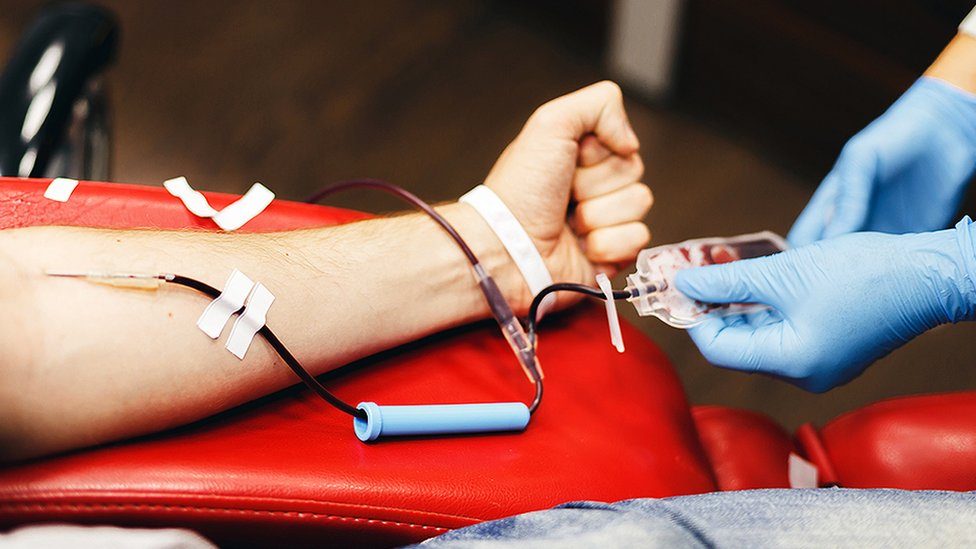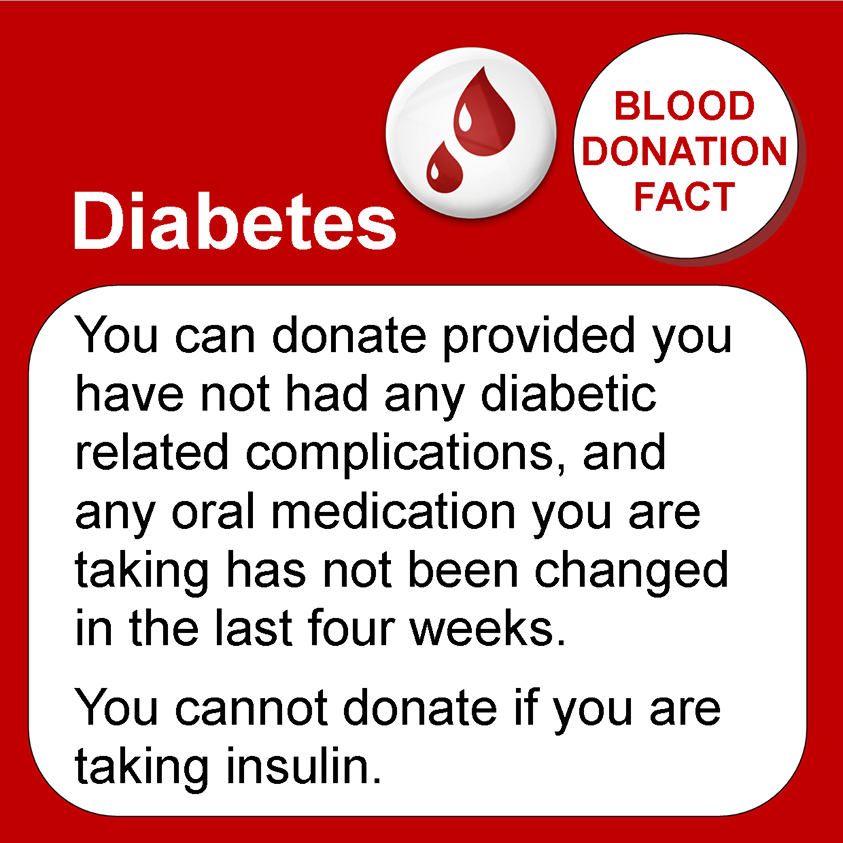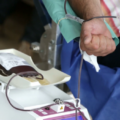Blood is the most precious gift that anyone can give to another person — the gift of life. A decision to donate your blood can save a life, or even several if your blood is separated into its components ( red cells, platelets and plasma ) which can be used individually for patients with specific conditions.
Recent research suggests giving blood may temporarily improve insulin production and glucose tolerance. There is a constant need for regular blood supply because blood can be stored for only a limited time before use. Regular blood donations by a sufficient number of healthy people are needed to ensure that safe blood will be available whenever and wherever it is needed.
Heart attack, stroke and type II diabetes have all been shown to be less common in individuals that regularly donate blood. But, according to a new study led by researchers at King Abdullah International Medical Research Center (KAIMRC), just a single blood donation can temporarily improve a person’s insulin production and glucose tolerance.
Factors that may prevent a diabetic from donating
Blood sugar levels
If your blood glucose level is within your target range (set by your medical provider) and you are in good health, you should be fine to give blood. You should not donate if you are having issues with your sugars and they are not in range, but it’s also a good idea to let your doctor know you wish to donate blood to get his or her recommendation. Blood with too much sugar in it doesn’t store well.
Source of insulin
Those who have used bovine-derived insulin at any time since 1980 are ineligible to donate. This requirement is related to concerns about variant CJD, or mad cow disease. Studies have shown that there is a small possibility that mad cow can be passed through blood transfusions. Other diabetic medications, in general, won’t prevent you from giving blood, but there is a list of other medications that could cause a deferral. Please review our deferral list for more information.
Who can give blood in the UK
Most people can give blood. You can give blood if you:
- are fit and healthy
- weigh between 7 stone 12 lbs and 25 stone, or 50kg and 158kg
- are aged between 17 and 66 (or 70 if you have given blood before)
- are over 70 and have given a full blood donation in the last two years
Coronavirus (COVID-19) advice
Please keep donating, particularly if you are:
- male – men can donate more often than women
- black – Ro blood is needed and is a common type for black donors
- O negative – hospitals need this blood type most regularly, as it can be given to all patients
Donation centers are open as normal despite coronavirus restrictions. Giving blood, platelets and plasma is essential to the UK NHS and vulnerable patients. Although they have new rules about donating after coronavirus. Please read the following information before coming to donate: New coronavirus blood donation rules
Can Diabetics Donate Blood In The United Kingdom
Both Canada and the United Kingdom do not allow people taking insulin to donate blood. This means anyone with type 1 diabetes cannot donate, but those with type 2 diabetes can as long as they do not require insulin for blood sugar management.
Tips for diabetics on how to prepare to give blood
In the days before your donation, strive to keep your sugar level within the normal range as determined by your medical care team. As with all blood donors, we recommend that you hydrate well the days before and after your donation and get plenty of sleep the night before.
How can I prepare for donating blood?
Before you decide to donate blood, there are a few ways you can prepare to make sure your donation is successful. You should:
- Drink plenty of water leading up to the donation. You should increase your water intake a few days before your scheduled donation.
- Eat iron-rich foods or take an iron supplement one to two weeks before the donation.
- Sleep well the night before your donation. Plan on getting eight or more hours of sleep.
- Eat balanced meals leading up to your donation and afterward. This is especially important when you have diabetes. Maintaining a healthy diet that keeps your blood glucose levels low is key to having control of your condition.
- Limit caffeine on donation day.
- Bring a list of the medications you are currently taking.
- Carry identification with you, such as your driver’s license or two other forms of identification.
Monitor your blood glucose levels post-donation
Some Type 1 diabetics report slightly elevated blood glucose levels 3-5 days after donating. While your immediate levels won’t spike or bottom out due to donating, it is possible that donating blood may cause your A1C or HbA1c to be falsely lowered. This is thought to be caused by blood loss and accelerated red blood cell turnover.
Monitor your blood sugar levels after donating and make sure to keep your body nourished by increasing your fluid intake and consuming more iron. SEE: How Much Is A Pint Of Blood?






